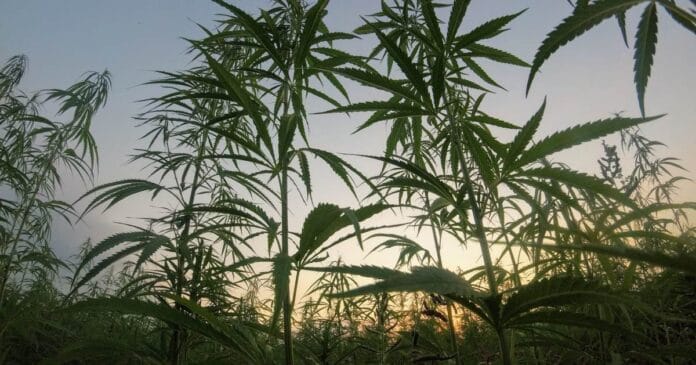In Australia, a submission to the Select Committee on PFAS has extolled the virtues of hemp for cleaning up these persistent contaminants.
PFAS (per- and polyfluoroalkyl substances) are a group of more than 14,000 synthetic chemical compounds found nowhere else in nature that are resistant to degradation. These substances, often referred to as “forever chemicals,” have been widely used in industrial and consumer products for their water-repellent, grease-resistant, and non-stick properties.
Once released in the environment, PFAS can migrate into soil, surface water, and groundwater; potentially contaminating drinking water supplies. In some parts of Australia, the use of bore water has been banned due to PFAS contamination. PFAS has been linked to a range of adverse health effects, both in humans and other organisms. These forever chemicals have been difficult and costly to clean up using conventional methods.
In August this year, Australia’s Senate appointed a select committee to inquire into the extent, regulation and management of PFA. Led by Chair Senator Lidia Thorpe, the committee subsequently invited individuals and organisations to submit their opinions and proposals.
One of the submissions so far is from Hemp Farms Australia, which says it has scientific validation of the efficacy of its Australian-bred hemp varieties in phytoremediation efforts.
“Our meticulously bred hemp seed varieties have shown exceptional promise in bioaccumulating contaminants such as PFAS, lead, cadmium, magnesium, copper, chromium, cobalt and nickel from soil,” the organisation states.
Among its recommendations is future policy concerning PFAS site remediation incorporates industrial hemp cropping.
HFA points out there has been no research into the potential of industrial hemp for PFAS remediation in Australian soils and recommends Australian Government agencies further investigate the potential of Australian-bred hemp for this purpose.
As for what to do with hemp used for PFAS phytoremediation to ensure it doesn’t escape into the environment again, it could be utiised in encapsulated hempcrete panelling; or destruction by pyrolysis could offer opportunities as a renewable feedstock for electricity generation.
Submissions to the Committee close on 19 December 2024. The Committee intends holding public hearings in early 2025 and present its final report by 5 August 2025.
Back in 2017, Australian researchers demonstrated hemp seed proteins to be effective in removing PFAS chemicals from water.


